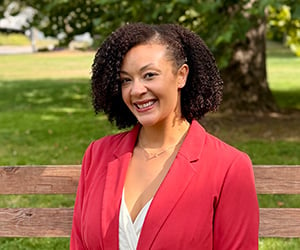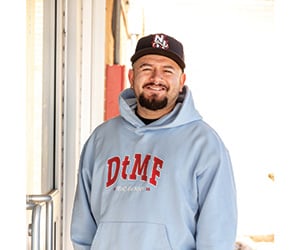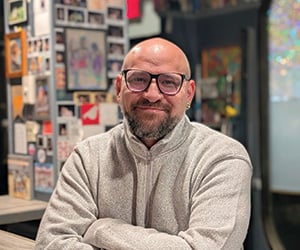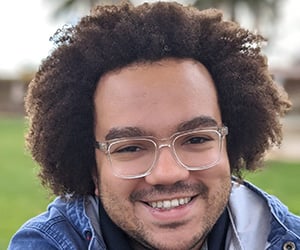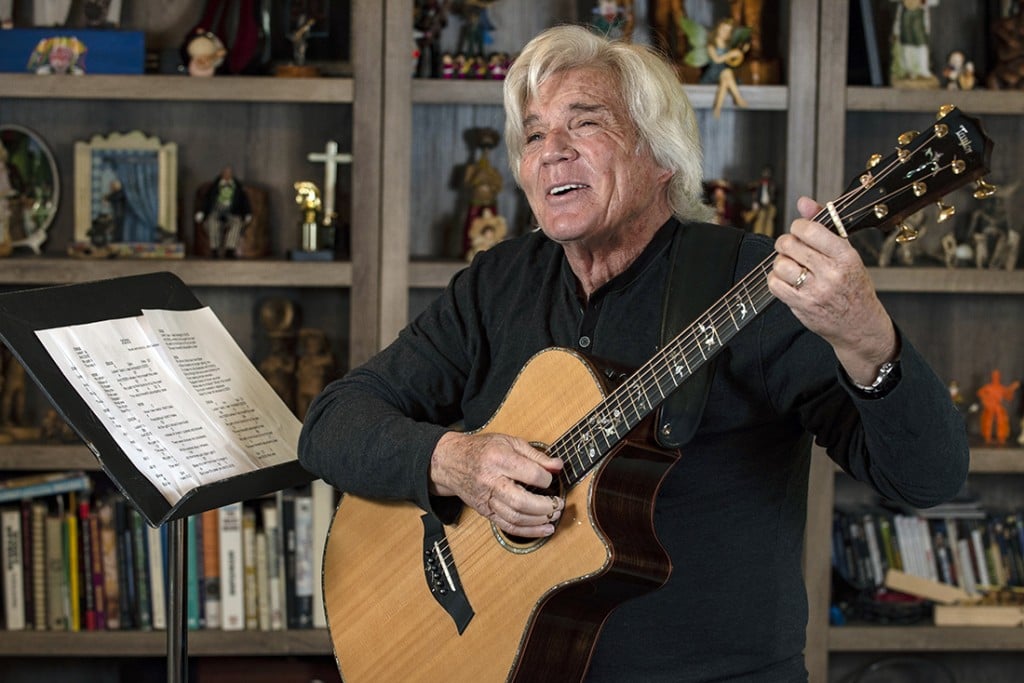It’s All in a Day’s Work for Stephanie Ihezie, MD
You know how when you’re worried about doing something, someone might say to you, “Oh, come on — it’s not brain surgery”? Well, on a typical day for Stephanie Ihezie, it might indeed be brain surgery.
 Ihezie is about midway through the seven years that she needs to complete as a neurosurgery medical resident at Dartmouth Hitchcock Medical Center before she can continue with her medical career.
Ihezie is about midway through the seven years that she needs to complete as a neurosurgery medical resident at Dartmouth Hitchcock Medical Center before she can continue with her medical career.
Anyone who hopes to work as a doctor faces a long haul of training, but neurosurgery — which involves the brain, spine and other parts of the nervous system — “is one of the most challenging specialties,” Ihezie says.
Not only is neurosurgery technically difficult, she says, but it “demands every part of you,” with long, arduous hours and psychological stressors such as needing to think fast under pressure. And, of course, there’s little room for error.
Ihezie was born in New York to a mother who worked as a nurse and a father who owned an auto parts business. When Ihezie was 6 months old, her parents moved the family to Nigeria, returning to the United States after a couple of years to settle in Texas.
Growing up, she didn’t have a burning desire to be a doctor — although she does recall dressing as a surgeon on career day in elementary school, complete with skull cap, gloves, surgical gown and shoe covers borrowed from her mom.
The spark for Ihezie’s career really came in high school, when she took advanced placement college courses in psychology and biology. Learning about thought processes, how the brain works, what happens in the body on a cellular level and the origins of movement fascinated her. She wondered, “‘How can I combine these things?’”
She attended MIT as a brain and cognitive sciences major, and found that, despite MIT’s large international community, “it was mostly white,” she says. As a Black woman, she experienced “a couple of instances of feeling excluded,” but MIT provided excellent mentors, and her determination was not shaken.
“I came in with a focus and a mission,” she says, driven by her faith, her upbringing and her overarching desire to help people. Her compassion is evident in a number of choices she has made — like when she was balancing a full course load at MIT but agreed to help a family member who wanted to get a bachelor’s degree even though they lacked basic computer skills.
“This person would handwrite all of their (school)work and send it to me, and I typed it,” Ihezie says.
But in Ihezie’s mind, the ultimate and “most direct way to help people is through medicine,” she says.
She witnessed medicine’s power while still at MIT, when she shadowed a Mass General neurosurgeon who had performed surgery on a boy who was around 6 or 7 years old. Prior to the surgery, a brain tumor had left the boy unable to walk and move normally.
“I saw how after the neurosurgeon treated him,” Ihezie recalls. “The (boy) was walking down the hall to leave the hospital, and people were in the hallway clapping and cheering for him.” The boy “was elated, with the biggest smile on his face.”
After MIT, Ihezie returned to Texas for medical school, where she never wavered from her desire to be a neurosurgeon, although she did check out orthopedics after a mentor suggested that Ihezie consider it. But the day-to-day experience of orthopedics didn’t really grab her. Neurosurgery, in contrast, “felt like a calling,” she says. “The brains and the heart control everything,” she says with a shrug.
As a neurosurgeon, Ihezie performs brain surgery nearly every day of the week. What does it feel like to perform surgery on someone’s brain?
“Amazing, humbling, exciting, terrifying — all of the emotions!” she says. “The brain is a very beautiful organ and powerhouse system that is also quite delicate. I genuinely consider it a privilege to operate on each brain I am entrusted with.”
Ihezie says that “surprisingly,” she doesn’t often encounter overt racism or sexism from patients, but she finds that she “overthinks” her words and interactions with patients and hospital staff, with an awareness of the “preconceived notions people might have about someone who looks like me, based on what they’ve seen and read in the media.”
She tries to foster a team mindset at work and appreciates even the staff members whose jobs “might not be the most glamorous,” she says.
“All jobs matter. I can’t help the patients if someone doesn’t clean the instruments or enter the codes for the insurance company. I can’t do what I do without them, and I take care of
them and others when they need to be cared for. We all depend on what other people do.”
She is also keenly aware that some patients, through no fault of their own, face odds that are stacked against their health because they can’t afford medical care, for example, or can’t get to medical treatments because they don’t have a car or are disabled.
Such barriers to health frustrate Ihezie, because they prevent her from helping people as much as she otherwise could.
When she needs encouragement, she draws on the support she’s received from the many role models and mentors she has had.
Despite all the challenges of being a neurosurgeon, Ihezie remains passionate about it.
“I am invigorated by it even though it is exhausting,” she says. “It’s rewarding even though there are days that you don’t like it. It’s deeper than enjoyment. It’s the people I’m serving.”
This article is featured in the fall 2024 issue of 603 Diversity.
603 Diversity’s mission is to educate readers of all backgrounds about the exciting accomplishments and cultural contributions of the state’s diverse communities, as well as the challenges faced and support needed by those communities to continue to grow and thrive in the Granite State.

